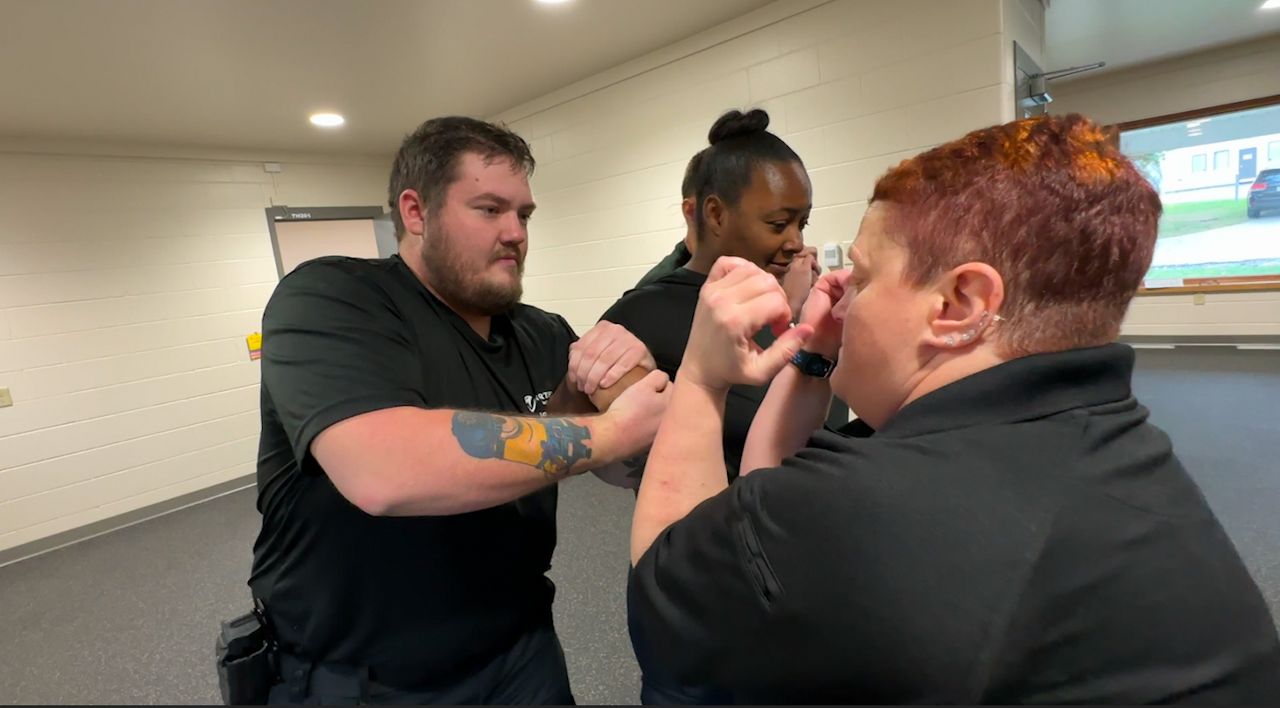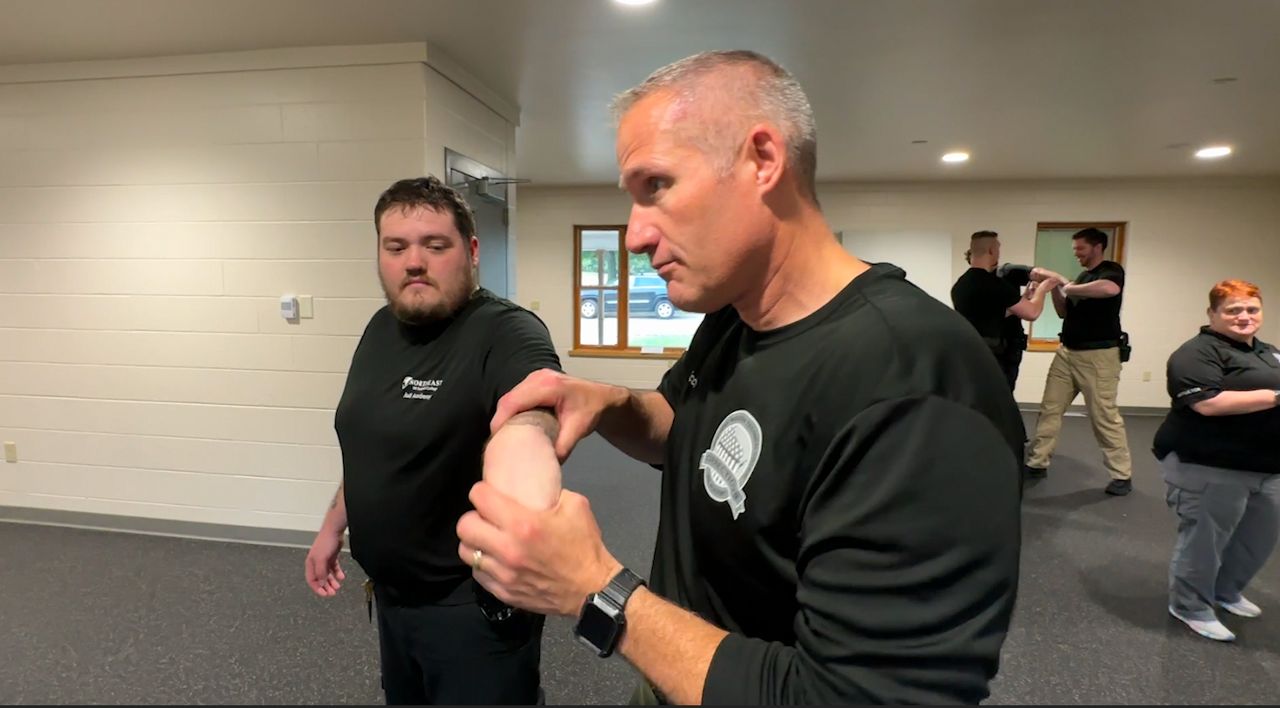GREEN BAY, Wis. — Working with three other students, Kyle Smith is getting hands-on practice with a less-than-cooperative inmate.
It’s just the kind of thing he’ll encounter in his career as a jail corrections officer.
“Today we’re learning subject control and maintaining the security and safety of inmates and ourselves within the jail,” Smith said.
He’s a student in the five-week Jail Academy at Northeast Wisconsin Technical College. He’s also a corrections officer in Shawano County.
Smith has a background in emergency medical services but made the move to law enforcement for a change.
“I enjoy both, but I think I like the corrections side a little bit more, just because you can be the best of both worlds,” he said. “Part of our job is to be there for the inmates and keep them healthy and secure. Sometimes that just means talking with them.”

Most of the students, like Smith, have already been by hired by a law enforcement agency. The program graduates about 65 students a year.
Similar programs are offered at other technical colleges around the state.
Adjunct instructor Pat Bricco said the academy covers a wide spectrum of topics and skills.
“We teach defensive tactics, professional communications skills, de-escalation techniques, officer wellness, supervising special inmates,” Bricco said. “Those are a whole variety of subjects that really make them a well-rounded officer when they leave this program.”
Bricco knows the need for corrections officers is high. He’s also the jail administrator in Sheboygan County.
“Most of the issues we’re running into are finding enough candidates to fill the vacant positions,” he said. “There’s a huge need for us to get these people trained and get them out into the workforce and really help bolster the numbers that are in each agency.”

Zane Sumwalt works in Richland County as a jailer and dispatcher. He said the job is different from what people might see in the movies.
“Usually, a lot of inmates are very easy to work with. They understand why they’re in jail. A lot of jailers, corrections officers, prison guards understand why the people are there,” he said. “The job isn’t to punish these people. The job is to be there and protect these people. I take a great deal of satisfaction helping protect these people, say there’s a medical emergency.”
Smith said the five-week course covers a lot of ground.
“Stuff I didn’t even think we’d be going over, we’re going over. We’re going over all the laws for corrections, inmate rights and stuff like that,” he said. “It’s stuff we don’t really brush on a lot when you’re working, but this all good information we’re learning here and it’s going to help me for sure.”



